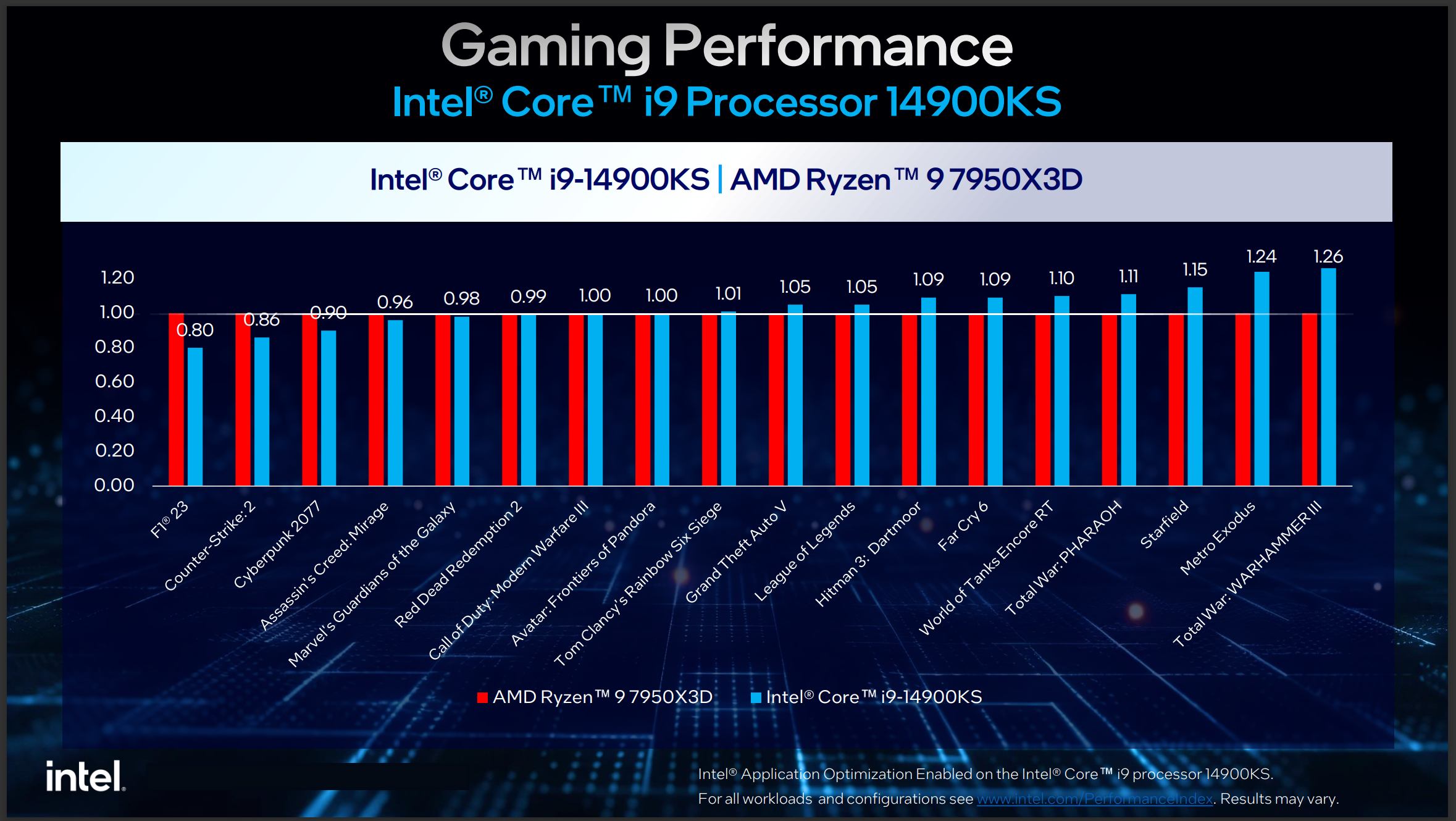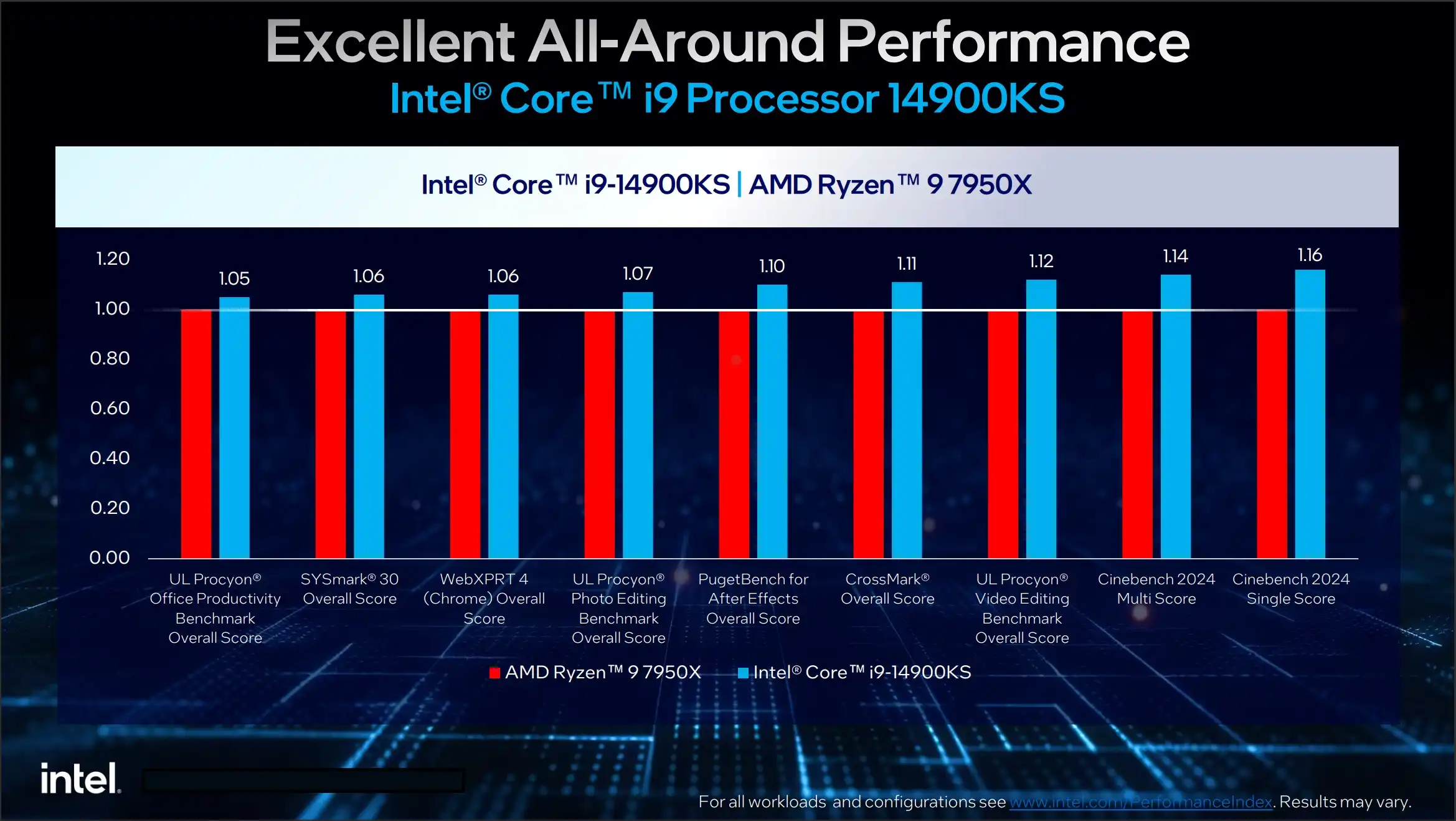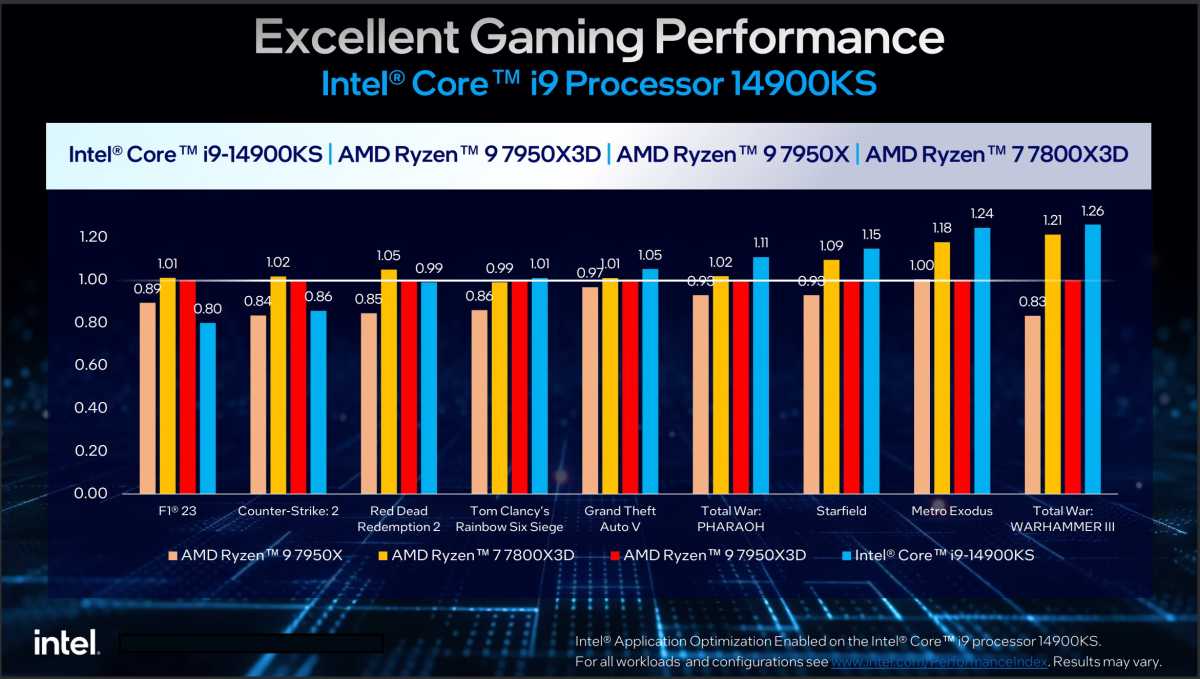Intel continued its climb up the clock-speed ladder by launching the Core i9-14900KS, a “special edition” desktop chip that offers the very fastest clock speed of any current PC processor, at 6.2GHz. As expected, though, you’ll pay for it, with a price of $689.
But don’t expect it to easily outclass the competition, either. Intel acknowledged that, in certain games, AMD’s recent Ryzen 7000X-series chips outperform it.
Last year, Intel announced the Core i9-13900KS, a 6.0GHz chip that superseded the fastest “normal” chip in Intel’s desktop lineup, the 5.8GHz Core i9-13900K. The current Core i9-14900K tops out at 6.0GHz. (All of these speeds represent the top speed under Intel’s Thermal Velocity Boost.) You can see the progression.
Otherwise, the fastest iteration of the 14th-gen “Raptor Lake Refresh” generation is identical to the 13th-gen “Raptor Lake” chip: It has 24 cores (8 performance cores, 16 efficiency cores) and 32 threads, with 36MB of Intel Smart Cache and 32MB of level 2 cache. That’s important, as buyers will compare it to the Ryzen 9 7950X3D and its massive 144MB of total cache. Intel’s new Core i9-14900KS also runs at the same 150W as its predecessor, demanding 253W under load.
Intel
Intel chose to release the Core i9-14900KS today, however, a few months later in the year than the January announcement of the Core i9-13900KS. Coincidence or not, that also means that Intel revealed some performance benchmarks, both in comparison to its 13th-generation chip as well as AMD’s own Ryzen 7000-series chips. (AMD has announced its own 65W Ryzen 7 8700G processors for entry-level gaming, but nothing yet in its latest generation for the high end.)
Intel outlined several games in which the Core i9-14900KS clearly outperforms the earlier Core i9-13900KS, with a slight 3 percent margin in Starfield and a much larger 15 percent increase in Metro: Exodus.
Intel
Nevertheless, Intel acknowledged that AMD’s Ryzen sometimes holds a performance advantage, in direct comparisons to both the Ryzen 9 7950X3D as well as a broader range of Ryzen 7000-series chips.
It’s important to note, however, that Intel’s comparisons are also being made with Intel Application Optimization enabled. Intel Application Optimization (APO), according to Intel, “optimizes thread scheduling,” presumably pushing as much of the workload as possible to the performance cores. But APO was also skipped entirely in Intel’s 12th- and 13th-gen Intel Core chips, even though it was supposedly a software feature.


And, even then, with APO turned on, Intel’s Core i9-14900KS can’t beat AMD’s Ryzen 7800X3D in Read Dead Redemption 2. That would seem to give AMD a significant opportunity when its own Ryzen 8000X3D processors debut.
Intel’s new i9-14900KS processor will be compatible with motherboards built around the Z790 and Z690 chipsets, with support for up to 192GB of DDR5-5600/DDR4-3200 memory. As always, Intel recommends that customers seek out BIOS updates from their motherboard manufacturers.

Intel
Remember, AMD hasn’t launched its Ryzen 8000-series X3D chips for the high-end gaming market yet. Will we see them before the Computex show in early June, or will AMD’s chief executive Dr. Lisa Su wait to announce them there?



